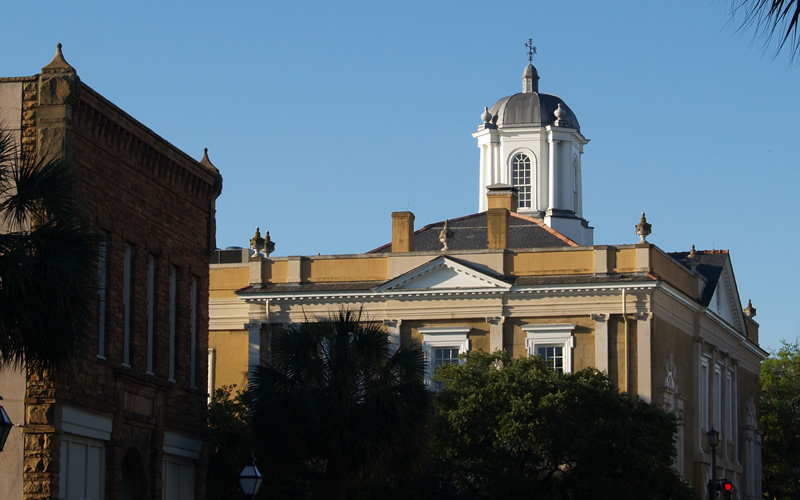
By Andy Brack | It might have been the weather. Or something in the water. Or fairy dust. Or just a combination of political factors that created a perfect storm.
 Whatever forces combined Tuesday in Charleston’s mayoral runoff, challenger and former Republican S.C. Rep. William Cogswell narrowly beat known Democratic incumbent John Tecklenburg on a drizzly day in a nonpartisan race that was a nail-biter. Out of more than 27,000 votes cast, Cogswell garnered 569 votes more than the two-term incumbent to win a runoff election that focused more on personalities than issues.
Whatever forces combined Tuesday in Charleston’s mayoral runoff, challenger and former Republican S.C. Rep. William Cogswell narrowly beat known Democratic incumbent John Tecklenburg on a drizzly day in a nonpartisan race that was a nail-biter. Out of more than 27,000 votes cast, Cogswell garnered 569 votes more than the two-term incumbent to win a runoff election that focused more on personalities than issues.
The Lowcountry race is of big interest across the state because it should be instructive in 2024 for how candidates politick in a charged political environment in which voters seem to want change, but don’t seem to care much about details. Call it the Trumpification of local politics – give the people what sounds good, but don’t worry too much about intricacies of policy positions.
So let’s break down what happened in the Charleston runoff into the four major categories of campaigning for office: Message, media, money and machine.

Message: Less is more. The Charleston mayor’s race wasn’t filled with grand policy positions and issue papers. Rather, it was more personal. Cogswell successfully made Tecklenburg the issue – that the city needed change and that Cogswell was the guy to do it. He tapped into fear and loss of privilege by criticizing Tecklenburg for not leading during a night of limited King Street violence after the 2020 murder of George Floyd in Minnesota. He also complained in a clever television ad about “Teck-nical difficulties,” such as flooding and leadership, despite multiple successes by the mayor on a raft of projects. Lost in the conversation over the last 13 months was Cogswell’s undistinguished Statehouse record of proposing just eight bills in six years with none passing. Meanwhile, Tecklenburg’s focus on linking Cogswell to the right-wing Moms for Liberty group that infected reasonable operations at the county school board may have backfired for the mayor. Bottom line: Style, not substance, fueled Cogswell’s campaign. Voters didn’t seem to care about major policy positions to fuel the future. Advantage: Cogswell.
Media: More on TV is better. While both candidates are thought to have spent more than $150,000 on media after the general election, Cogswell’s ads were everywhere on the television airwaves during news shows. Tecklenburg’s were split between streaming, television and social media. It almost seemed as if Cogswell won the television ad war by default. Had Tecklenburg diverted more messaging to television, he might have come out ahead. Advantage: Cogswell.
Money: Parity is good for a challenger. Cogswell loaned himself more than $210,000 in garnering an $800,000 warchest before the general election, according to state disclosure reports. Tecklenburg made himself a $50,000 loan in the same timeframe and had a similar amount of money. But because Cogswell could keep up with the mayor in spending, he was able to do what he needed to do to garner the votes he needed to win. Advantage: Cogswell.
Machine: Signs and momentum. Voters didn’t appear to pay much attention to an endless array of endorsements for both candidates after the general election. Tecklenburg, a veteran of Lowcountry campaigns for a generation, had a dedicated army of volunteers to pull voters to the polls. And while somebody put up signs for Cogswell all over the area, it’s likely that an effort to build his change-based turnout machine relied more on technology – ads, quiet targeting and social media – to keep his campaign messaging in focus. Perhaps the new way works better than old-fashioned door-knocking and telephone-calling. Advantage: Cogswell.
Without much detail or depth on issues, William Cogswell took the bare message that he would be an instrument of change to propel him into being elected as Charleston’s new mayor starting in January. For most people, that was enough to topple John Tecklenburg.
Andy Brack is editor and publisher of Statehouse Report and the Charleston City Paper. Have a comment? Send to: feedback@statehousereport.com.















 We Can Do Better, South Carolina!
We Can Do Better, South Carolina!